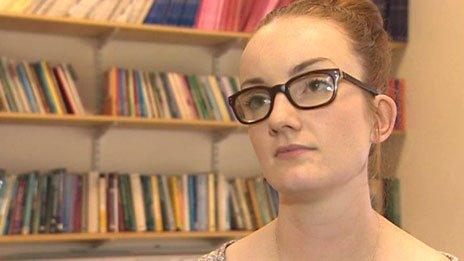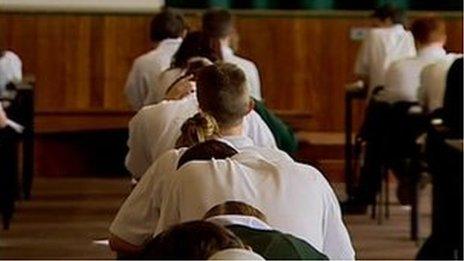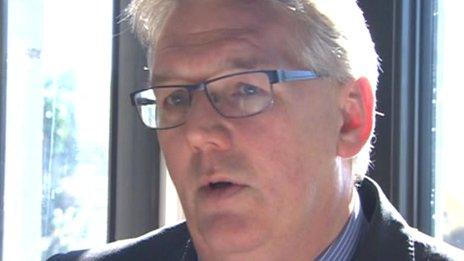Bilingual pupils not top of class but not bottom either
- Published
The performance of 25,000 pupils has been compared
Primary school children from English speaking homes who attend Welsh only schools are less likely to be top performers in maths, science and English than English-medium pupils
But they are also less likely to underachieve, according to Welsh government figures.
They look at how 11-year-olds are doing in core subjects as well as first language Welsh in Welsh schools.
The performance of 25,000 pupils is compared.
The figures were released after a Freedom of Information request, external.
They compare 11-year-old pupils from every school in Wales who are not eligible for free school meals (FSM).
The information covers 87% of children in Welsh-medium schools and 78% of pupils from English-medium schools.
Three groups of children were compared:
Pupils in English-medium schools
Pupils in Welsh-medium schools from Welsh-speaking homes
Those in Welsh-medium schools from English-speaking homes.
The general expectation is that the majority of 11-year-olds will attain level 4 (L4) in each subject.
According to teachers' guidelines for English L4, those reaching it should be able to show fluent and legible handwriting, as well as understanding significant ideas, themes, events and characters.
In English-medium schools, 8% of pupils fell short of that L4 mark in English as a subject.
In Welsh-medium schools the figure was 7% for pupils from both Welsh-speaking and English-speaking homes.
So pupils in Welsh-medium schools were slightly less likely to under-achieve in English as a subject than their counterparts in English-medium schools.


Dr Mirain Rhys, research associate at Wales Institute of Social & Economic Research, is an expert on the issue and has spoken to parents.
"Many of the concerns raised by English-speaking parents of pupils in Welsh medium schools were about children being able to complete their homework and having support from their parents. It's an area which needs more research.
"When they don't speak Welsh themselves it's quite a worry. I know the Welsh government and Welsh Language Board used to have a helpline to helping pupils and parents - it's initiatives like that that can help."

It is a similar story with Maths and Science - pupils in Welsh-medium schools are less likely to under-perform.
However, when we look at higher-achieving pupils - those 11 year olds getting above level 5 (L5) - it's a different matter.
To reach L5 in English, pupils have to show simple and complex sentences organised into paragraphs and range of punctuation.
In English-medium schools, 44% of pupils reached L5 or better in English as a subject, which compares to 42% for pupils from Welsh-speaking homes in Welsh-medium schools.
The figure for pupils from English-speaking homes in Welsh-medium schools is 40%.
Carla Bartlett, head of Welsh at Ysgol Gyfun Cymer Rhondda in Porth, where 99% of pupils are from English-speaking homes
So fewer pupils from Welsh-medium schools were top achievers when it came to English as a subject.
When it came to top L5 performers in Maths and Science, there was very little difference between pupils in English-medium schools (43% Maths, 44% Science) and pupils in Welsh-medium schools from Welsh-speaking homes (44% Maths, 44% Science).
However, fewer pupils in Welsh-medium schools from English-speaking homes reached the L5+ in those two subjects (39% mathematics, 38% science)
Considering Welsh first language as a subject in Welsh-medium schools, 45% of children from Welsh-speaking homes were considered top achievers (L5+) compared to 30% of children who did not speak Welsh at home.
Put another way, nearly a third of children who do not speak Welsh at home are considered as being top performers for Welsh as a first language.
- Published24 April 2014

- Published31 March 2014

- Published11 July 2014

- Published12 March 2014
